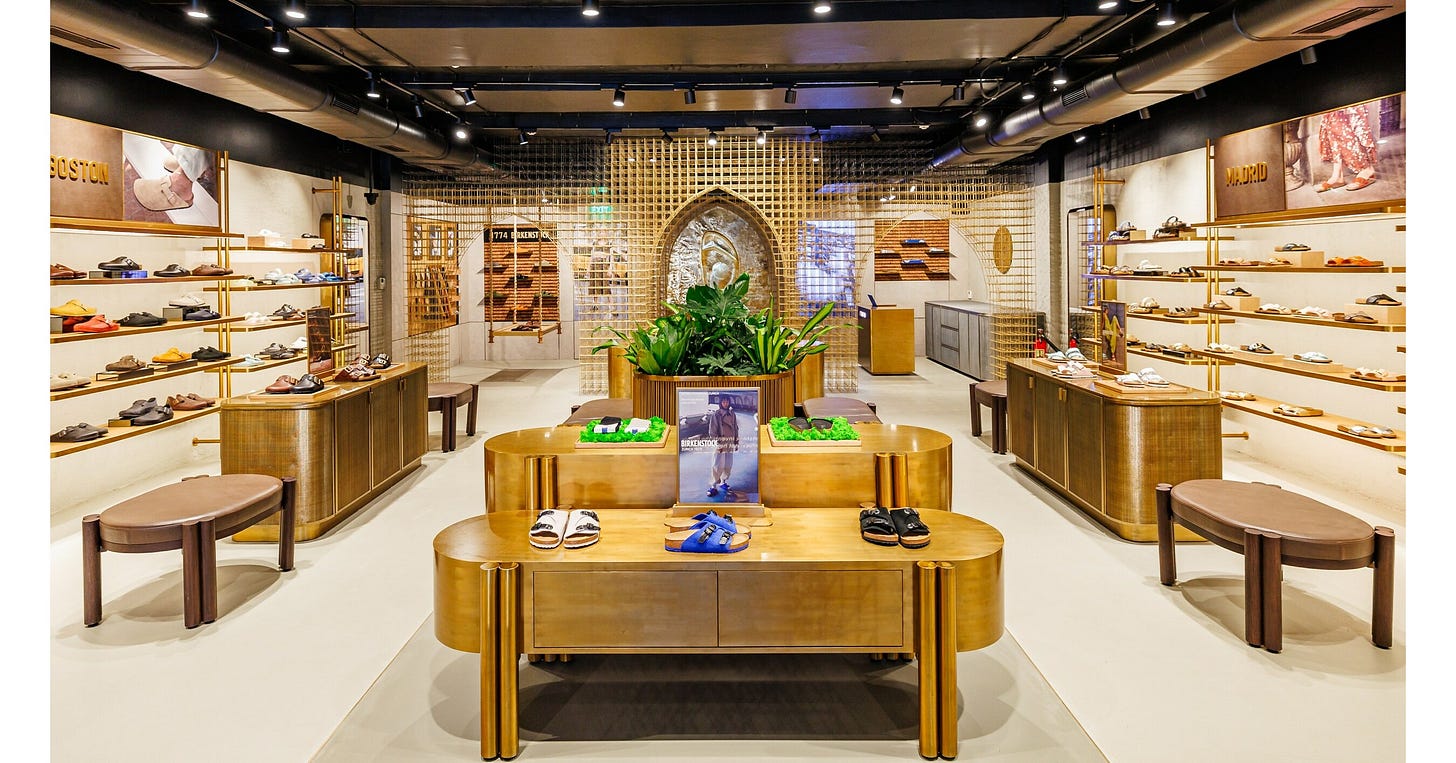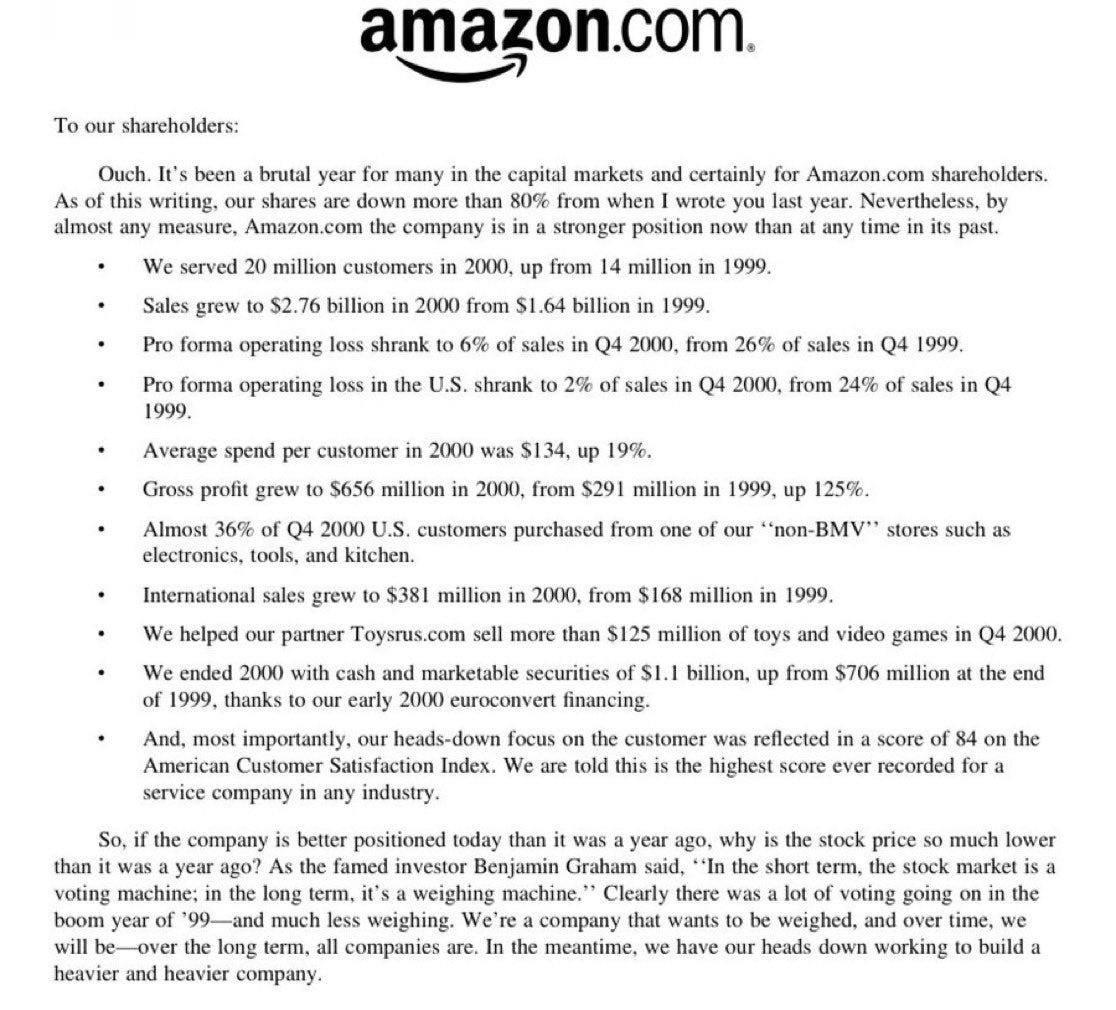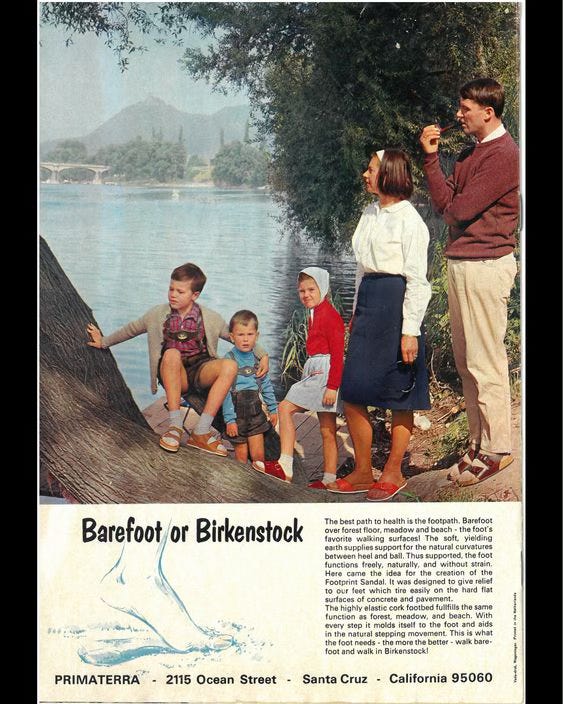🪓BIRKENSTOCK: Finding ‘Chappal’s Comfort’ in Corks!
[#14] Tale of Chaos: 250 yr-old German-forged sandals. After hiking first worlds, came for India’s feet. 5 yrs & ₹200Cr later, are the CORKs ready for becoming “Chappal-champs” of Indian Bourgeoise…
"Shoes are scars. Scars of our journey; they tell the story of where we have been. In every step we take, our shoes carry the weight of our choices."
- Unknown Thinker
“HEY GUYS…WELCOMEBACKTOMYCHANNEL…TODAYWEAREGOINGTODOASOCIALEXPERIMENT”
“Hello young boi, How much does your outfit cost?”
“Ummm…ahhh…hahahah…alright…yo..yo…not much. This T-shirt is from Zudio. Rs 299. These are baggy fit jeans from Shopper stop. Rs 799…And my sandals are Arizona Birks for Rs 10000”.
INR 10000.
That right there is the borderline amount which segregates two future-driven young sects of India.
The Highborns and the Herds.
Let’s stay on this amount for a while. Rs 10000.
How does highborns look at this amount? And how does the herd perceive it — speaks a lot about purchasing behaviour of India’s lucrative market?
Rs 10000…
THE (K)EY NOTES:
The (K)urrent: WALK OF THE CORKS!The (K)réme: SANDAL SOLE-MATESThe (K)inK: CROCS TO CORKS: FIGHT FOR THE FEET
What would have gotten with this youngster so bad that his most expensive part of the outfit is more than triple of his pocket money?
This is what we are walking talking about in today’s Freedom🇮🇳 Edition.
In order to make any product a masses favourite, you have to master the skill of massaging your product as aspirational. Play the hard-to-get game. That momentum of it’s ‘NOT FOR ALL’ genre is where it all start to make sense. When it’s done, *boom* You are inducted in the game. But there’s a long path to walk from here…
Xenocentrism.
A phenomenon where you find home-grown indigenous brands feels like Bob Odenkirk from Nobody. And firangi brands as the John Wick. That’s the dichotomy of Indian consumers.
Aspiration above everything. That kind of edgy traits is what makes Indian market the most fragile. So who’ll rule this segment of the ‘walking’ market?
No one product is hero. Xenocentrism makes sure it’s remained that way.
That’s why Indian terrains have cited an ‘ugly orthopaedic’ sandals competing to become the “Bata for the Indian Elites”.
When someone adores the beauty beyond your skin, you’re a true visionary.
When someone checks out someone’s vibe from ‘head to toe’, you’re a true Admirer.
But when someone who is just busy looking at people’s feets — what are you?
Will they succeed in marching towards a more elitist future?
Let’s brutally breakdown🪓 this luxury footloose ‘BIRKENSTOCK’ and find out the beauty of pure german craftsmanship.
THE (K)URRENT
WALK OF THE CORKS…
Germans are known for carving the best engineered products in the world. Apart from it’s high-handed history; when you look at their art of building beautiful products, they are extravagant with their engineering.
You name it — they have pioneered it all.
Automobile. Manufacturing. Technology. Watches. Home appliances. Chemicals. Sportswears. Stationary. Optical systems. If you can think about it, German can engineer it.
Porsche. Volkswagen. BMW. Mercedez-Benz. Audi. Adidas. Bosch. Faber-castell. Siemens. Zeiss. Leica. Bayer. SAP…It just goes on and on and on.
Following the same exemplified culture, there’s a german brand that has entered India’s footwear circuit. But before we sole-down on ‘what-how-why’ of BIRKENSTOCK in India, we need to know the ‘Who’?
Tie your knots and lace up for the ‘CORKY’ ride, the brutal business breakdown🪓 of this German’s India-vasion…
REBELS FROM THE SOLE
Birkenstock, the German footwear brand known for its ergonomic design and high-quality materials, has carved a unique niche in India, often referred to as the "Bata for Elites." This moniker highlights its dual status as a brand synonymous with comfort and durability, much like Bata, yet elevated to an elite status due to its pricing and perceived luxury.
The story of Birkenstock begins in 1774 in a small village in Germany, where Johann Adam Birkenstock, a humble shoemaker, laid the foundation for what would become a global footwear phenomenon. The brand’s significant innovation came in 1896 when Konrad Birkenstock developed the first contoured footbed, a design that remains central to Birkenstock's products today.
The footbed, crafted from cork and latex, is designed to mimic the shape of a healthy foot, providing unparalleled comfort and support. This focus on ergonomic design and natural materials set Birkenstock apart from other footwear brands.
The post-World War II era saw Birkenstock's rise in popularity, particularly in the 1960s and 1970s, when the brand became associated with the counterculture movement in the United States. Hippies and free spirits embraced Birkenstocks for their comfort and natural aesthetics, helping the brand gain a foothold in the burgeoning market for casual, comfortable footwear. By the 1990s, Birkenstock had firmly established itself in the global market, recognized for its distinctive design and high-quality craftsmanship.
THE ASCENSION IN BHARAT
Birkenstock entered the Indian market at a time when the country was experiencing a shift in consumer preferences. The rise of the middle class and increasing disposable incomes created a demand for premium and luxury products. Indian consumers began to prioritize quality and brand value over merely cost considerations. Despite being a price-sensitive market, India saw a growing segment willing to invest in products that offered superior comfort and long-term benefits.
Birkenstock capitalized on its global reputation for quality and comfort, positioning itself as a premium brand that justified its higher price point. The marketing strategy emphasized the health benefits of the contoured footbed, appealing to a health-conscious and informed consumer base.
Birkenstock also adopted a targeted retail strategy, opening stores in affluent urban centers and partnering with high-end retail outlets. This ensured that the brand was accessible to its target demographic – the urban elite and middle class with higher disposable incomes. The use of digital marketing and social media campaigns helped in creating brand awareness and connecting with younger, tech-savvy consumers.
CORK-BLOCK
In an era where comfort reigns supreme, once-overlooked brands like Crocs and Birkenstock began shedding their reputation as “ugly boots” and found favor among millennials and Gen Z. Yet, bringing Birkenstock to a price-sensitive market like India required more than just a wave of global trends. Long before the brand's official launch, India was already saturated with Birkenstock-inspired designs.
A former senior executive from a leading footwear brand, who requested anonymity, revealed that the concept of Birkenstocks was introduced to the Indian market well over a decade ago. Around 2012-13, a high-ranking executive from a publicly listed Indian retailer, while on an overseas business trip, purchased a pair of Birkenstocks. Seeing a lucrative opportunity, they quickly moved to replicate the design for their “affluent and well-traveled” clientele. Within months, knockoff versions priced between Rs 1,000 and Rs 3,000 were available in stores across the country, sparking a trend that other major retailers were quick to follow.
Birkenstock, as a company, maintains tight control over its production processes, with all proprietary footbeds manufactured exclusively in Germany and additional production in Portugal. Nearly all assembly takes place in Germany as well, ensuring that every pair meets the brand’s stringent quality standards.
In terms of pricing, Birkenstock occupies the premium or affordable luxury segment, making it accessible to only a select few. For those who purchase a pair, it’s not just about comfort—it’s a statement piece, a subtle flex in social circles that speaks to their taste and lifestyle.

Many reputable retailers, including Bata, Metro Brands, Neeman’s, Westside, Myntra, and Marks & Spencer, offer look-alike versions of Birkenstock sandals under their private labels. While an authentic pair of Birkenstocks typically costs between Rs 4,000 and Rs 19,000 (US$48–227), these copied versions are available at a fraction of the price, ranging from Rs 1,000 to Rs 3,500 (US$12-42).
On marketplaces like Amazon, searching for “Birkenstock” reveals pages filled with knockoffs from brands like Sypkar, Underroute, and Bata, alongside a few genuine Birkenstock SKUs offered by resellers.
THE (K)REMÉ
SANDAL’S SOLE-MATES…
"The sandals were part of his simple side," Chrisann Brennan (Steve Jobs ex-partner) told Vogue in 2017. "He would never have done or bought anything just to stand out from others. He was simply convinced of the intelligence and practicality of the design and the comfort of wearing it. And in Birkenstocks he didn't feel like a businessman, so he had the freedom to think creatively."
Steve Jobs, the man in the machine; Known for his minimalist approach to life, and that extended even to his choice of footwear. His preference for Birkenstocks wasn’t just about comfort; it was a statement. These Arizona sandals, with their simple design and ergonomic construction, embodied the same philosophy that drove Jobs to create products that were both functional and elegant. Birkenstocks weren’t about flash or trend; they were about enduring quality and thoughtful design.
What’s fascinating about Birkenstocks is how a piece of footwear designed with German precision engineering has transcended its practical origins to become a status symbol.
But what was its unique proposition that makes it functional for even atoms to high net worth individuals considering it as a part of themselves?
People from all walks of life, from hippies to young fashion-forward individuals, gravitate towards Birkenstocks for reasons that go beyond mere functionality. The driving force behind their appeal lies in a deeper psychological connection to authenticity and identity. In a world saturated with fast fashion and fleeting trends, Birkenstocks represent something enduring and genuine. They are not just shoes; they are a statement of values—of choosing substance over style, comfort over conformity.
For many, wearing Birkenstocks is an expression of individuality, a rejection of the superficial in favor of something that feels real. The brand has cultivated an image that resonates with those who value simplicity and quality. There’s a certain rebellion in choosing footwear that doesn’t scream for attention but quietly asserts its presence through its timeless design and enduring comfort. This subtlety is powerful in a culture that often values flash over substance.
The psychology at play here is about more than just personal comfort—it's about aligning with a brand that mirrors one's own philosophy of life. Whether it's the laid-back ethos of the hippie movement or the minimalist approach favored by modern consumers, Birkenstocks embody a certain ethos that speaks to people on a deeper level. They become a part of the wearer’s identity, a symbol of choosing to walk through life with intention and authenticity. This connection to something greater than just a shoe is what keeps people coming back to Birkenstocks, making them a staple in wardrobes across generations.
People like Jobs, who are driven by a pursuit of excellence, are naturally drawn to products that reflect their values. Birkenstocks, with their blend of form and function, resonate with those who appreciate craftsmanship and longevity.
It’s not about following the crowd; it’s about choosing something that aligns with a personal philosophy of simplicity and substance.
That’s why Birkenstocks have become more than just sandals—they’re a quiet symbol of thoughtful living, much like the iconic products Jobs himself created.
The (K)inK.
“Internet piK of the week”
In 2000, Amazon shares fell 80%. Jeff Bezos shareholder’s letter response…
CROCS TO CORKS…
“FIGHT FOR THE FEET — WILL STOP WHEN WE DIE”
Birkenstock stepped into direct-to-consumer (D2C) sales in December 2019 with its website in India. A store at Delhi’s Indira Gandhi International Airport opened following that. By June 2023, there were 25 stores. And by June 2024, the count hit 37, including its first company-owned flagship in Mumbai, according to Satish Meena at Datum Intelligence.
Its sales in India have been doubling annually, with a nearly 64% compound annual growth rate (CAGR) from 2020 to 2023, outpacing the India arm of American comfort footwear company Crocs…
Our (K)inKy investigation slip ONs are ready to KorKScrew Indian startup diaspora…
Leveraging Premium Pricing in a Price-Sensitive Market
Birkenstock has successfully positioned itself as a premium product in a market where over 60% of consumers are highly price-sensitive. This demonstrates the potential for premium pricing strategies in India, provided the product offers a clear, differentiated value proposition.
The Indian footwear market is projected to grow at a CAGR of 8.3%, reaching $15.5 billion by 2025. Within this, the premium segment is growing faster, with a CAGR of over 10% . Birkenstock’s success suggests that there is a growing market for high-quality, premium products even in traditionally price-sensitive segments.
Indian startups should not shy away from positioning their products as premium offerings if they can substantiate the value through quality, durability, or unique benefits. Creating an educational marketing strategy that emphasizes these points can help justify the higher price, appealing to the aspirational middle class.
Creating a Strong Brand Identity Rooted in Product Philosophy
Birkenstock’s success lies in its clear and consistent brand philosophy centered around comfort, health, and sustainability. This strong brand identity resonates with consumers who value authenticity and long-term benefits over fleeting trends.
A survey found that 68% of Indian consumers are willing to pay more for products from brands that are environmentally responsible . Birkenstock’s commitment to sustainability has likely contributed to its appeal in this demographic.
Indian startups should develop a strong brand identity that aligns with their core values and resonates with their target audience. Emphasizing aspects like sustainability, ethical production, or innovation can help build a loyal customer base. Startups should ensure that this identity is consistently communicated across all platforms and touchpoints.
Targeting Niche Segments within the Broader Market
Birkenstock has effectively targeted India’s urban elite and middle class—consumers who prioritize quality and are willing to pay for it. This focus on a specific niche within the broader market has allowed Birkenstock to maintain its premium positioning without diluting its brand.
Startups should identify and target specific niches within the broader Indian market where there is a willingness to pay a premium for quality or specialized products. This could involve focusing on urban centers, specific age groups, or lifestyle segments. Tailoring products and marketing strategies to meet the unique needs of these niches can help startups establish a strong foothold without competing on price.
So now when you’re busy looking someone’s feet — what are you? You’re a Pitchfork marrying a KorkScrew.
Yo, I’m talkin' 'bout them Birks, man, they hit the block,
From Deutschland to Delhi, they rockin' the shock,
But let’s be real, it’s just some sandals, right?
Yet they sellin' like gold, in this price-sensitive fight.
I see the elite strollin', flexin’ on the street,
Payin’ ten grand just to cover they feet,
They call it “Bata for the rich,” yeah, that’s the twist,
But Bata’s for the masses, this is just a capitalist assist,
They pushin’ that brand, like it’s the top of the game,
But in a land of chappals, it’s just more of the same,
You might fool the rich kids, but the streets ain’t blind,
We see through the hype, through that corporate grind.
You got techies and influencers singin' your praise,
But out in the real world, that’s just a phase,
So here’s the deal, Birkenstock, you might reign for a while,
But trends fade fast in this subcontinent style,
You playin' the long game, but time will reveal,
That in India’s streets, only the real deal heals.
So keep sellin’ that dream, to those who buy in,
But the streets know the game, and they ain’t givin’ in,
Birks might be the craze, but it’s just a mirage,
In the land of real struggles, we know who’s in charge.
*mic drop*
~vivan.










